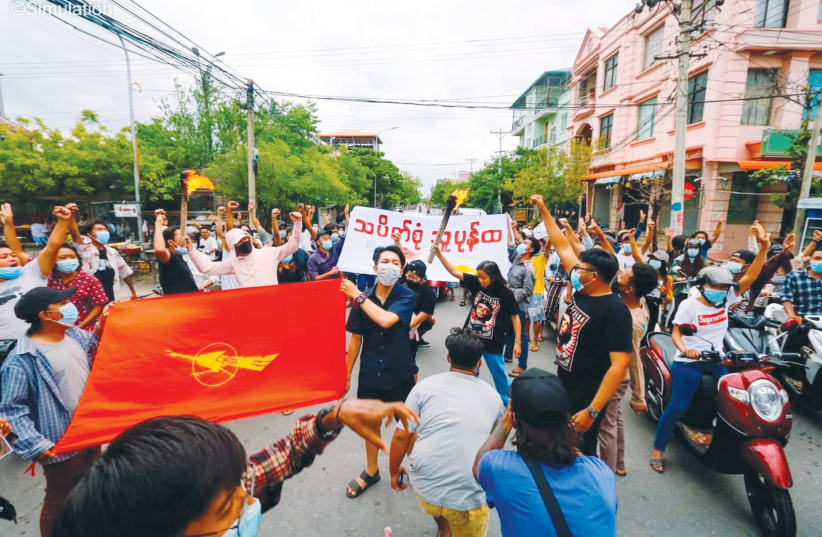India’s foreign secretary Harash Vardhan Singla is reported to have said the situation in Myanmar was “complex” and that India is working in the UN Security Council in a constructive manner to facilitate a balanced outcome that would assist in resolving the situation. Another close friend of Myanmar’s military junta, China’s Foreign Minister Wang Yi, told his counterpart Wunna Maung Lwin that China is committed to work with Myanmar since China’s policy toward its neighbors is not affected by changes to Myanmar’s domestic and external situation.
Both foreign ministers spoke on June 7 at ASEAN, a foreign ministers’ special meeting in Chongqing in southwestern China. This means both China and India are working in favor of the military regime of Myanmar.
Myanmar Tatmadaw has been intensifying efforts to seize control of Kayah state’s Demoso township from the combined forces of the Karenni National defense force and People’s Defense force. Fighting erupted on May 21 as reported by Irrawaddy news. Since the coup d’état more than a year ago, the military regime has been confronting protests in towns and cities around Myanmar. Karen National Liberation Army chief of staff Saw Mutu Say Poe is reported to have said that he would adhere to the nationwide ceasefire agreement but added, “I am saddened to see efforts to solve political problems arising in 2021 by taking up arms.” He added that those political problems need to be solved by political means, requiring negotiation. Karen National Liberation, the strongest armed group in Myanmar, operates underground and in mountainous regions where ethnic Karen minorities reside.
Economic sanctions against military leaders are not very effective because both the US Chevron and France oil giant are doing oil business in Myanmar. Oil profits go into the hands of military leaders, who also enjoy profit from sale of rubies and jades’ stones. Myanmar is reported to produce around 90 percent precious stones whose profit goes to military officers. In this connection, this writer draws attention to the Human Rights Council of the United Nations of 2019 which specifically draw attention to the fact that no businesses enterprise active in Myanmar or trading with or investing in business in Myanmar should enter into an economic or financial relationship with the security forces of Myanmar in particular—the Tatmadaw.
Economic sanctions would not have any effect on the military regime in Myanmar, which in fact recently rebuffed an ASEAN plan to help end violence in Myanmar saying, “Any suggestions need to fit in with the junta’ s stated road map and come after stability is restored.” On May 1, the UN Security Council demanded restoration of democracy in Myanmar and the release of all detainees, including elected leader Aung San Suu Kyi as it threw its weight behind calls by Southeast Asian Nations. Meanwhile, UN special envoy on Myanmar Christine Schraner Burgener is reported to have said that a common aspiration for democracy has united the people of Myanmar as never before across religious, ethnic and communal divides.
The statement by the special envoy gives the impression that the situation in Myanmar will not return to normalcy soon.
The writer, a retired diplomat from Bangladesh and former president of Nova Toastmaster International Club of America, writes from Falls Church, Virginia.
